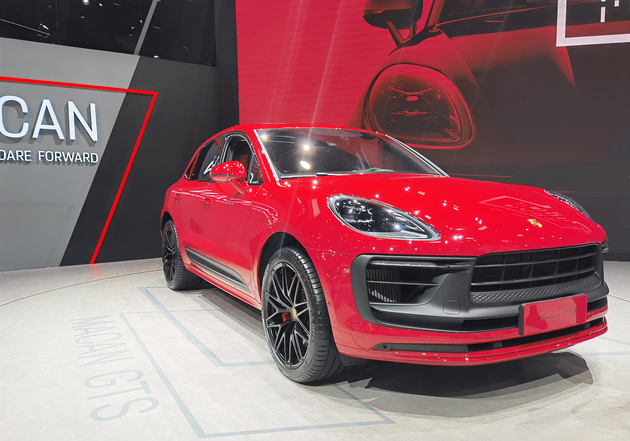
Photo/Dong Tianyi (NBD)
The all-electric Macan represents Porsche's second foray into the realm of electric vehicles, following the Taycan launched about four years ago.
On the evening of January 25th, the Porsche Macan made its global debut, and its pricing will be revealed at the Auto China 2024. The Macan is a new model developed by Porsche based on the 800V architecture platform PPE. The initial lineup includes the all-electric Macan 4 and the all-electric Macan Turbo. A notable feature of these models is the ability to charge the battery from 10% to 80% in approximately 21 minutes at 800V fast-charging stations.
The all-electric Macan experienced delays, originally planned for production and delivery to begin in 2022. Delays were attributed to the E3 1.2 architecture developed by Volkswagen's software subsidiary CARIAD, which could not be delivered on time, thus postponing the all-electric Macan's launch.
During the nearly two years of delay in the delivery of the all-electric Macan, the market competition for luxury electric vehicles in China has intensified. According to data from the China Association of Automobile Manufacturers, the penetration rate of new energy vehicles in the luxury car segment reached 33.2% in December 2023.
Moreover, more domestic brands are venturing into the luxury electric vehicle market, which means the all-electric Macan will face more intensified competition. For instance, BYD's first high-end SUV, the "Yangwang U8," has a starting price of 1.098 million yuan and achieved monthly sales of over 1,500 units in December 2023. Hyper, a high-end brand under GAC Aion, introduced the all-electric supercar Hyper SSR, with a price range exceeding 1 million yuan, reaching up to 1.686 million yuan for the top configuration. NIO also unveiled its million-dollar flagship model, the ET9, at the end of 2023.
Even in the market for luxury electric vehicles priced between 500,000 and 1 million yuan, there are numerous models for consumers to choose from, such as the Mercedes-Benz EQE SUV, NIO ES8, Tesla Model S, and the Zeekr 001.
Some analysts suggest that as domestic brands and new entrants rapidly expand into the high-end electric vehicle segment, capturing market share from traditional luxury brands, the acceptance of local brands among young Chinese consumers is also increasing. For ultra-luxury brands like Porsche, this poses additional challenges.
In fact, the import car market where Porsche operates has started to decline. According to data from the General Administration of Customs compiled by the China Association of Automobile Manufacturers, the total import of complete vehicles in the first 11 months of 2023 was about 719,000 units, a year-on-year decrease of 11.7%. Among them, the cumulative sales of luxury brands from January to November last year were about 618,000 units, a decrease of 2.16% compared to the same period in the previous year.
In 2023, the global delivery volume of Porsche was approximately 320,000 units, a year-on-year increase of 3%. China remained Porsche's largest single market with a delivery volume of about 79,000 units. However, it's noteworthy that Porsche's delivery volume in China decreased by 15% compared to the same period in 2022, marking the first time in nearly 23 years that Porsche experienced a decline in delivery volume in the Chinese market.
Against this backdrop, Porsche's transition to electrification becomes more urgent. By the end of 2023, Porsche had introduced a total of 27 electric and plug-in hybrid models to the Chinese market, including 9 all-electric models and 18 plug-in hybrid models; new energy models accounted for 16% of Porsche's new car deliveries. According to Porsche's plan, it aims to have 80% of its new car sales consist of all-electric models by 2030 and plans to invest 20 billion euros in digitization over the next five years.
Porsche China's President and CEO Michael Kirsch stated in an interview with National Business Daily that Porsche is committed to the electrification transition. In his view, China has already achieved considerable success with new energy vehicles in a reasonable price range, but in the luxury electric vehicle field, it is yet to see a real winner emerging.


 川公网安备 51019002001991号
川公网安备 51019002001991号





